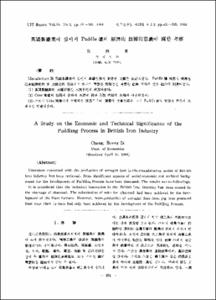임금인상이 노동생산성에 미치는 영향
- Alternative Title
- The Effect of Wage Increases on Labor Productivity
- Abstract
- 본 연구에서는 다른연구에서 노동생산성에 영향을 미치는 것으로 드러난 다른 요인들을 통제한 후 임금인상이 노동생산성에 미치는 영향을 실증적으로 조사하였다. 또한 1987년이후 근로자들이 노동조합을 통하여 임금결정에의 참여가 전보다 더 많이 허용되었으므로, 임금인상이 노동생산성에 미치는 영향의 정도를 1987년이전과 1986년이후의 두기간으로 나누어 비교하였다.
이 연구에서 제시된 두개의 가설을 검증하기 위하여 1981년부터 1992년까지 321개 상장기업들의 재무제표 자료를 사용하여 두개의 회기분석 모델을 개발, 추정하였다. 그 재무제표 자료는 KIS-DISKETTE를 사용하여 구하였다.
본 연구의 결과는 다음과 같다. 1) 임금인상은 다른요인(자본의 심도)을 통제한 후에도 노동생산성에 정의 방향으로 영향을 미친다. 이것은 근로자들이 임금인상에 긍정적으로 반응한다는 것을 나타낸다. 2) 임금결정에 전보다 더 많이 참여한다 하더라도 임금인상이 노동생산성에 더 많은 영향을 미치지는 아니하였다. 오히려 그 미치는 영향의 정도가 1987년이후에 그전과 비교할 때 더 감소하였다.
This study investigates the effect of wage increases on labor productivity, controlling the factors that are believed to affect labor productivity. Since 1987, employees have been allowed to participate in determining their wages through union negotiation more that over. Therefore, this study also compares the extent of the effect of wage increases on labor productivity before and after 1987 to see whether more participation of employees in determining wages afect the extent of the effect of wage increases on labor productivity.
Two regression models are adopted to test two hypotheses established for this study using 321 firms' financial statement data for the period from 1981 to 1992. The financial statement data are retrieved from KIS-DISKETTE.
The results of the study are as follows:
1) The wage increases affect labor productivity positively, after controlling another factor (the rate of increase in the amount of capital per worker). This suggests that employees react to wage increases affirmatively.
2) More participation in wage determination than ever did not resulted in more effect of wage increase on labor productivity. On the contrary, the extent of the effect of wage increases on labor productivity decreased after 1987, comparing with the period 1981-1986.
This study investigates the effect of wage increases on labor productivity, controlling the factors that are believed to affect labor productivity. Since 1987, employees have been allowed to participate in determining their wages through union negotiation more that over. Therefore, this study also compares the extent of the effect of wage increases on labor productivity before and after 1987 to see whether more participation of employees in determining wages afect the extent of the effect of wage increases on labor productivity.
Two regression models are adopted to test two hypotheses established for this study using 321 firms' financial statement data for the period from 1981 to 1992. The financial statement data are retrieved from KIS-DISKETTE.
The results of the study are as follows:
1) The wage increases affect labor productivity positively, after controlling another factor (the rate of increase in the amount of capital per worker). This suggests that employees react to wage increases affirmatively.
2) More participation in wage determination than ever did not resulted in more effect of wage increase on labor productivity. On the contrary, the extent of the effect of wage increases on labor productivity decreased after 1987, comparing with the period 1981-1986.
- Issued Date
- 1994
- Type
- Research Laboratory
- Alternative Author(s)
- Kim,Jeong-Youn
- Publisher
- 경영학연구논문집
- Language
- kor
- Rights
- 울산대학교 저작물은 저작권에 의해 보호받습니다.
- Citation Volume
- 1
- Citation Number
- 1
- Citation Start Page
- 63
- Citation End Page
- 77
- Appears in Collections:
- Research Laboratory > Journal of management
- 파일 목록
-
-
Download
 000002024450.pdf
기타 데이터 / 959.73 kB / Adobe PDF
000002024450.pdf
기타 데이터 / 959.73 kB / Adobe PDF
-
Items in Repository are protected by copyright, with all rights reserved, unless otherwise indicated.